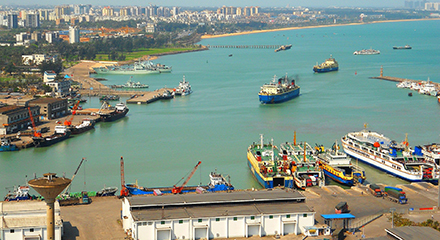China’s announcement on Thursday that it would lift its ban on Australian timber imports has been widely welcomed.
It is good news. Hundreds of people lost their jobs when China imposed the ban in 2020 because of “phytosanitary concerns”.
The problem, it seemed, was bark beetle infestations.
At the time it was pointed out China had stepped in to buy up almost 1.2 million cubic metres of beetle-infected German softwood logs in the second quarter of 2002, up 143% from a year before.
Of course, no one really believed the ban was about the beetle. It was all about criticism of China by Australia by, among other people, the then-Prime Minister Scott Morrison.
But Federal and State governments did the right thing and muttered the appropriate concerns.
The then-Agriculture Minister David Littleproud said the Department of Agriculture was working with industry on an “enhanced treatment and inspection response”.
Victoria’s then-Agriculture Minister Jaclyn Symes said that “if bark beetle is present, it is a legitimate reason to suspend trade, and we want to make sure we can address any quarantine issues as quickly as possible”.
So now the problems are apparently solved. That is good news.
But since the bans were imposed the world has changed.
Australia has changed.
Timber Towns Victoria president Karen Stephens said there would be some caution.
“The timber industry was reliant on the huge contracts with China to supply timber, but the import ban did make the industry rethink,” she said.
“So, they have found new markets. So, it could be a very interesting playing field now for China,” she said.
Timber companies have told The Australian that they have already found different markets, and strong domestic demand means there was in fact a shortage of export logs.
“It opens up an opportunity to take it to another market, but there is not a massive volume,” Pentarch Forestry chief executive Paul Heubner told The Australian.
And as the ABC reported, the restoration of timber imports comes a month after Australia agreed to suspend its appeal to the World Trade Organization over Chinese government tariffs on Australian barley.
That agreement came just before the international body was due to hand down a finding over the dispute.
So, a cynic might be led to wonder who benefits the most from the ban being lifted.
That remains to be seen.






